第57章 HANNAH BINT.(2)
My friend, Hannah Bint, is by no means an ordinary person. Her father, Jack Bint (for in all his life he never arrived at the dignity of being called John, indeed in our parts he was commonly known by the cognomen of London Jack), was a drover of high repute in his profession. No man, between Salisbury Plain and Smithfield, was thought to conduct a flock of sheep so skilfully through all the difficulties of lanes and commons, streets and high-roads, as Jack Bint, aided by Jack Bint's famous dog, Watch; for Watch's rough, honest face, black, with a little white about the muzzle, and one white ear, was as well known at fairs and markets as his master's equally honest and weather-beaten visage. Lucky was the dealer that could secure their services; Watch being renowned for keeping a flock together better than any shepherd's dog on the road--Jack, for delivering them more punctually, and in better condition. No man had a more thorough knowledge of the proper night stations, where good feed might be procured for his charge, and good liquor for Watch and himself; Watch, like other sheep dogs, being accustomed to live chiefly on bread and beer. His master, though not averse to a pot of good double X, preferred gin; and they who plod slowly along, through wet and weary ways, in frost and in fog, have undoubtedly a stronger temptation to indulge in that cordial and reviving stimulus, than we water-drinkers, sitting in warm and comfortable rooms, can readily imagine. For certain, our drover could never resist the gentle seduction of the gin-bottle, and being of a free, merry, jovial temperament, one of those persons commonly called good fellows, who like to see others happy in the same way with themselves, he was apt to circulate it at his own expense, to the great improvement of his popularity, and the great detriment of his finances.
All this did vastly well whilst his earnings continued proportionate to his spendings, and the little family at home were comfortably supported by his industry: but when a rheumatic fever came on, one hard winter, and finally settled in his limbs, reducing the most active and hardy man in the parish to the state of a confirmed cripple, then his reckless improvidence stared him in the face; and poor Jack, a thoughtless, but kind creature, and a most affectionate father, looked at his three motherless children with the acute misery of a parent who has brought those whom he loves best in the world to abject destitution. He found help, where he probably least expected it, in the sense and spirit of his young daughter, a girl of twelve years old.
Hannah was the eldest of the family, and had, ever since her mother's death, which event had occurred two or three years before, been accustomed to take the direction of their domestic concerns, to manage her two brothers, to feed the pigs and the poultry, and to keep house during the almost constant absence of her father. She was a quick, clever lass, of a high spirit, a firm temper, some pride, and a horror of accepting parochial relief, which is every day becoming rarer amongst the peasantry; but which forms the surest safeguard to the sturdy independence of the English character. Our little damsel possessed this quality in perfection; and when her father talked of giving up their comfortable cottage, and removing to the workhouse, whilst she and her brothers must go to service, Hannah formed a bold resolution, and without disturbing the sick man by any participation of her hopes and fears, proceeded after settling their trifling affairs to act at once on her own plans and designs.
Careless of the future as the poor drover had seemed, he had yet kept clear of debt, and by subscribing constantly to a benefit club, had secured a pittance that might at least assist in supporting him during the long years of sickness and helplessness to which he was doomed to look forward. This his daughter knew. She knew also, that the employer in whose service his health had suffered so severely, was a rich and liberal cattle-dealer in the neighbourhood, who would willingly aid an old and faithful servant, and had, indeed, come forward with offers of money. To assistance from such a quarter Hannah saw no objection. Farmer Oakley and the parish were quite distinct things. Of him, accordingly, she asked, not money, but something much more in his own way--'a cow! any cow! old or lame, or what not, so that it were a cow! she would be bound to keep it well; if she did not, he might take it back again. She even hoped to pay for it by and by, by instalments, but that she would not promise!' and, partly amused, partly interested by the child's earnestness, the wealthy yeoman gave her, not as a purchase, but as a present, a very fine young Alderney. She then went to the lord of the manor, and, with equal knowledge of character, begged his permission to keep her cow on the Shaw common. 'Farmer Oakley had given her a fine Alderney, and she would be bound to pay the rent, and keep her father off the parish, if he would only let it graze on the waste;' and he too, half from real good nature--half, not to be outdone in liberality by his tenant, not only granted the requested permission, but reduced the rent so much, that the produce of the vine seldom fails to satisfy their kind landlord.
Now Hannah showed great judgment in setting up as a dairy-woman.